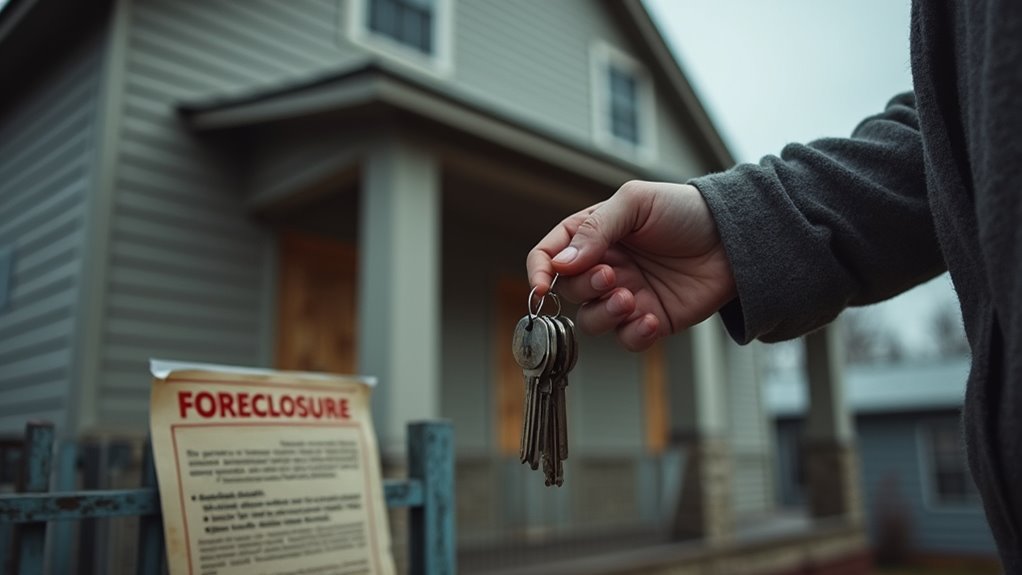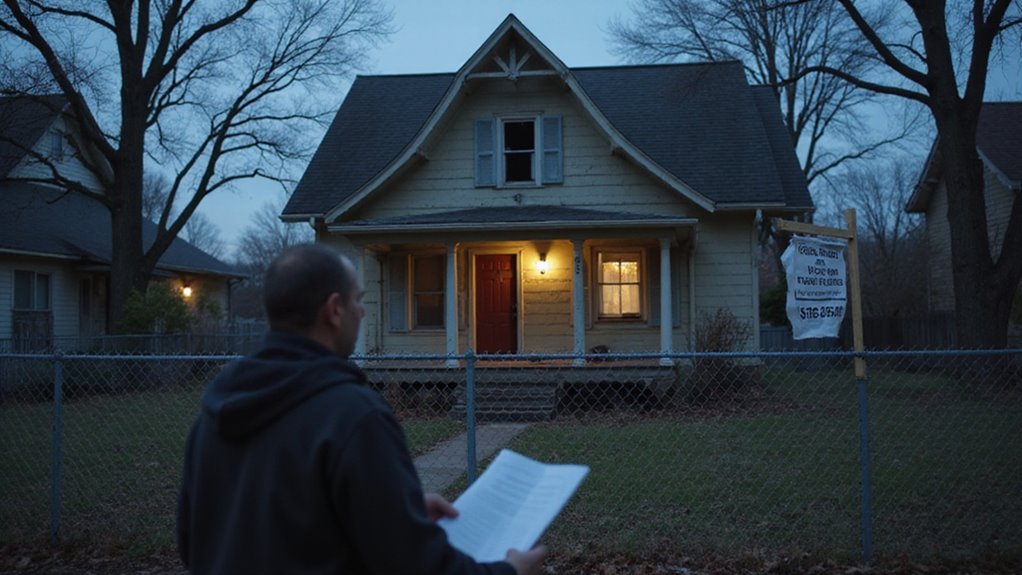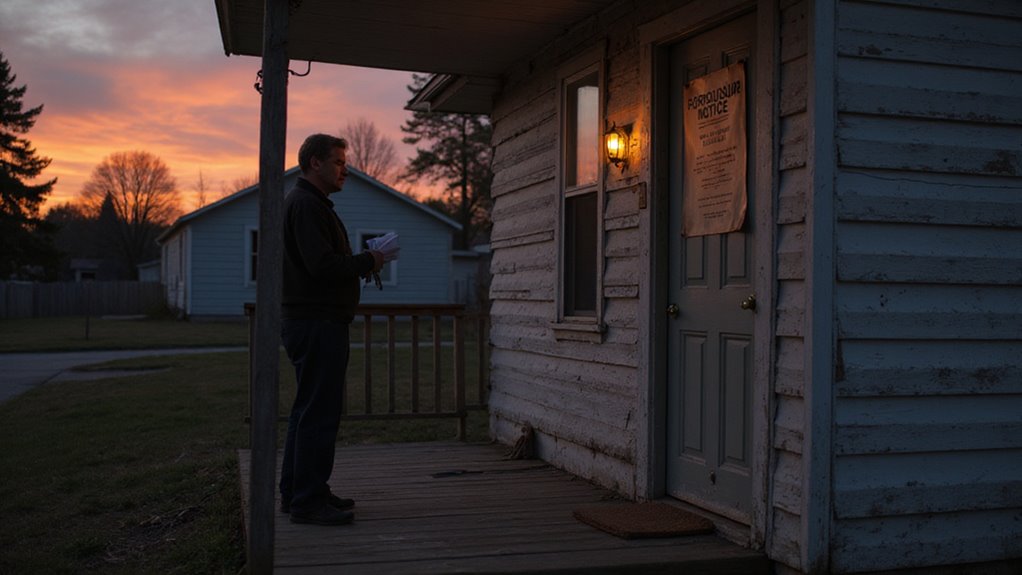Drowning in mortgage notices while your home slips away feels like watching a tsunami approach. Foreclosure threatens not just your property but your financial stability, credit score, and peace of mind. Each passing day narrows your options while lender pressure mounts relentlessly. Taking immediate action with the right strategy can still save your equity and minimize long-term damage.
Yes, you can legally sell your house during foreclosure, and many homeowners do this successfully. The key is acting before the auction date and obtaining proper approval from your lender for the sale. This approach often provides better financial outcomes than letting the foreclosure complete. Working with real estate professionals who understand distressed sales improves your chances significantly. In this blog I will explore everything about selling your home while navigating the foreclosure process.
Key Takeaways
- Selling your house during foreclosure is legal in many states, but lender approval is often required.
- Options include traditional sale, short sale, or deed in lieu of foreclosure, each affecting credit differently.
- Contact your lender early to discuss options and obtain necessary approvals before the foreclosure sale.
- The foreclosure process timeline varies by state and can take from 30 to 90 days or more.
- Consulting a real estate attorney or professional can help protect your rights and expedite the sale process.
Can You Sell a House During Foreclosure?

Yes, you can sell a house during foreclosure. This option is available until the actual foreclosure auction takes place. Homeowners must act quickly to avoid losing their property. A short sale during foreclosure allows you to sell your home for less than you owe. Traditional sales are also possible if you have enough equity.
In many states, you maintain legal ownership rights until the auction completes. Communication with your lender is essential throughout this process. Many lenders prefer a sale over foreclosure. Furthermore, working with real estate professionals familiar with distressed properties improves your chances of success.
What Happens During the Foreclosure Process?

The foreclosure process begins when you miss mortgage payments. Your lender will first send a notice of default after 3-4 months of missed payments. You then enter a pre-foreclosure period where you can still resolve the situation. This period typically lasts 30-90 days depending on your state.
Next, if the default continues, your lender files a foreclosure lawsuit or schedules a trustee’s sale. Your property then moves toward auction. During this time, you maintain ownership and can still sell the home or seek alternatives.
Many homeowners explore loan modifications, short sales, or bankruptcy protection before the final stages. Acting quickly provides more options and can protect your credit score from severe damage.
Is It Legal to Sell a Home in Foreclosure?

Yes, you can legally sell your home during foreclosure in Oklahoma. You must obtain lender approval before the foreclosure sale occurs and comply with state property rights laws. This option allows homeowners to avoid the negative impacts of a completed foreclosure.
Proper documentation is essential throughout this process. You should notify all parties involved in the foreclosure immediately. As a matter of fact, quick action protects your financial interests and credit score.
The law requires clear communication with your mortgage lender regarding your intent to sell. Remember to work with professionals who understand foreclosure sales.
What Are Your Options When Facing Foreclosure?
You have several ways to handle foreclosure. A short sale lets you sell your home for less than you owe with lender approval. You can list your property on the market while working with your lender. Another option is a deed in lieu of foreclosure, which transfers ownership to avoid the full process.
Filing for bankruptcy temporarily stops foreclosure proceedings. This pause gives you time to explore alternatives. Each choice affects your credit differently. The best option depends on your specific financial situation and future goals. Consider speaking with a housing counselor for personalized advice. They can help you understand the implications of each choice.
How to Sell Your House During Foreclosure
To sell your house during foreclosure, start by contacting your lender right away to discuss options and get approval if needed. Next, determine your mortgage payoff amount to avoid surprises and price your home realistically to attract buyers quickly. Consider working with foreclosure specialists and preparing all necessary documents now to speed up the process and avoid delays.
Contact Your Lender First
Call your lender immediately if you’re facing foreclosure. This urgent step establishes communication and shows good faith. Request your precise mortgage payoff amount to understand your financial situation clearly. Your lender may offer alternatives like payment plans or short sales.
Legal advice about foreclosure can protect your rights during this process. Laws regarding foreclosure vary by state and may provide specific protections. Consider consulting a housing counselor approved by HUD.
Always document every phone call, email, and meeting with your lender. Keep copies of all paperwork and correspondence for your records. This documentation helps prevent misunderstandings and supports your case.
Determine Your Mortgage Payoff Amount
To get your mortgage payoff amount, contact your lender directly. Your payoff amount differs from your current balance because it includes interest and fees. Request this information in writing from your mortgage servicer. Most lenders provide payoff statements valid for 10-30 days.
This information helps you understand exactly what you owe. The statement will show your remaining principal, accrued interest, and any prepayment penalties. Furthermore, knowing this precise figure allows you to plan your finances accurately. For best results, make this request at least two weeks before you need the information.
Price Your Home Realistically
Set your home’s price based on current market value, not what you paid for it. This attracts serious buyers and speeds up the selling process. Accurate pricing reflects your home’s condition, location, and comparable sales in your area.
Professional appraisals provide objective valuations worth the investment. Most overpriced homes eventually sell for less than their actual market value. The longer a property sits unsold, the less attractive it becomes to potential buyers.
Consider obtaining multiple real estate opinions before finalizing your price point. This approach helps you avoid the common pitfall of emotional pricing during difficult situations.
Consider Working with Foreclosure Specialists
Foreclosure specialists offer valuable expertise to homeowners facing property loss. They understand the legal process and timelines involved in distressed property sales. These experts can help you price your home correctly for a quick sale before auction. Their marketing strategies specifically target buyers interested in pre-foreclosure properties. Furthermore, specialists have connections with investors who purchase homes in any condition. They can negotiate with your lender for possible short sale approval.
Most homeowners save thousands in potential deficiency judgments by working with specialists rather than handling the process alone. These professionals also help with paperwork and documentation requirements. In essence, foreclosure specialists provide the guidance needed during this challenging financial situation.
Prepare Necessary Documentation
Gather all crucial paperwork before selling your foreclosed home. Five essential documents include title deed, payoff statement, default notice, court papers, and sales contract. The title deed must be ready before listing to prove ownership.
Your payoff statement needs to show the exact amount owed to your lender. The notice of default serves as official proof of your foreclosure status. Court documents validate the legal proceedings against your property. A sales contract finalizes the agreement between you and your buyer.
Organizing these papers according to deadlines helps you navigate the foreclosure timeline effectively. This preparation increases your chances of securing short sale approval or completing a standard sale despite back payments.
What Are the Benefits of Selling Before Foreclosure Completes?
Selling your home before foreclosure offers several financial and emotional advantages. You can protect your credit score from severe damage that foreclosure causes.
A foreclosure can lower your credit score by 100-150 points and remain on your report for seven years. Your lender can’t pursue you for remaining debt through a deficiency judgment.
Additionally, you maintain control over the selling process rather than losing all authority to the bank. This control allows you to negotiate better terms and possibly keep more equity. You also avoid the public embarrassment of foreclosure proceedings. Furthermore, you can start rebuilding your financial life sooner without this burden.
How Fast Can You Sell a House in Foreclosure?
You can sell a foreclosure home in 30-90 days, depending on your state’s laws and your situation. The timeline varies based on court schedules and required legal notices. Cash buyers offer the fastest option, often closing in as little as 7-14 days. Traditional listings take longer but may yield higher profits if you have sufficient time.
Most states require at least 30 days of public notice before a foreclosure auction can occur. For best results, contact a real estate attorney immediately. They can explain your specific timeline and options. Additionally, some lenders might agree to short sales or loan modifications.
Ready to Sell Your Foreclosed Home? Contact Shawn Buys Houses Today
Selling a foreclosure-affected home starts with contacting a real estate investor like Shawn Buys Houses. Our team specializes in fast home purchases that help homeowners avoid the foreclosure process. We buy homes for cash without requiring repairs or renovations.
Foreclosure transactions can be completed within 7 days in many cases. This timeline provides relief when facing bank deadlines. Short sale approval services are also available for underwater mortgages.
Professional negotiators work with your lenders to create favorable outcomes. The process begins with a simple phone call or website form. Most importantly, you can move forward debt-free after completing the sale.
Frequently Asked Questions
Can I Sell My House if I Haven’t Received a Foreclosure Notice Yet?
If you haven’t received a foreclosure notice yet, act quickly. Contact a real estate expert or lawyer to investigate options like selling or refinancing, and ensure you stay ahead of the process to protect your home and financial future.
What Happens if I Sell My House After the Foreclosure Auction?
Selling after the auction is like catching a falling star—you might still have options. Act fast, consult an expert, and investigate all legal paths; your timely action can help protect others and maximize your sale’s effectiveness.
Are There Any Tax Implications When Selling a Foreclosed Property?
Selling a foreclosed property can trigger tax implications, including impactful capital gains taxes or income recognition. Act quickly, consult a tax professional, and investigate options to minimize your tax burden while helping others find solutions and relief.
Can I Buy Back My Home After It’s Been Foreclosed and Sold?
Like a phoenix, you can attempt to reclaim your home after foreclosure by paying the full amount owed within the redemption period. Act fast, communicate openly, and seek legal advice to serve your best chance of recovery.
How Does Filing for Bankruptcy Impact My Ability to Sell During Foreclosure?
Filing for bankruptcy pauses foreclosure, giving you extra time to sell your home. Act quickly—bankruptcy can delay or complicate sales, so consult a legal expert immediately to help you navigate options that serve your best interests and others.

